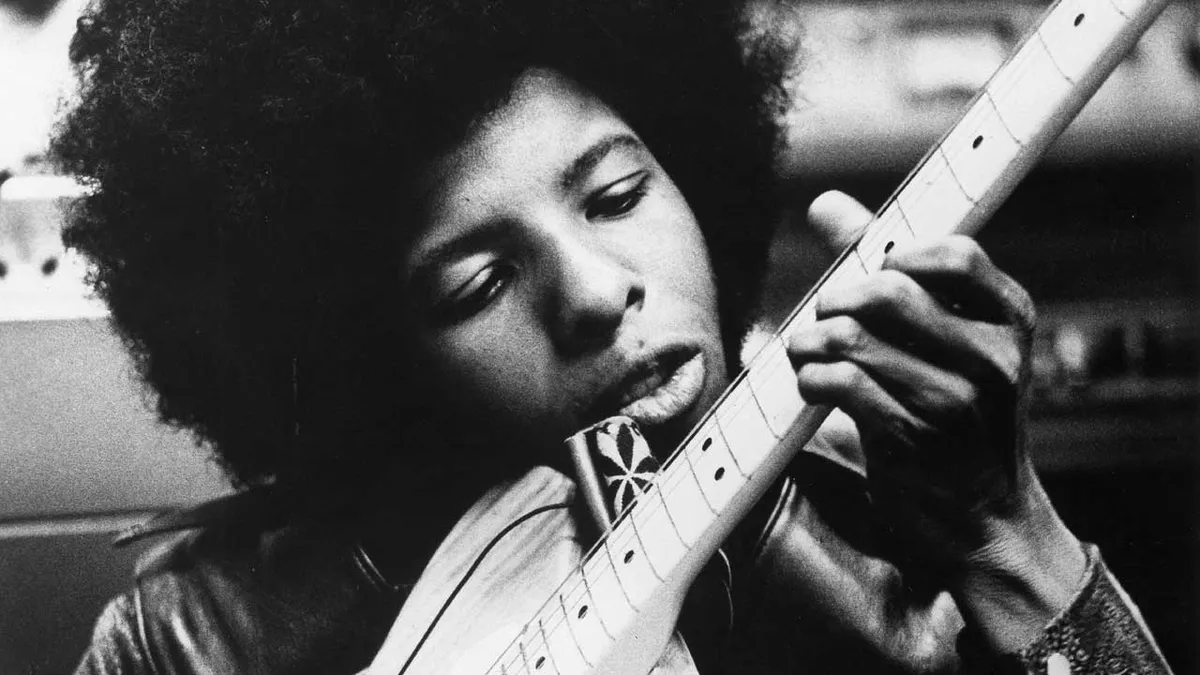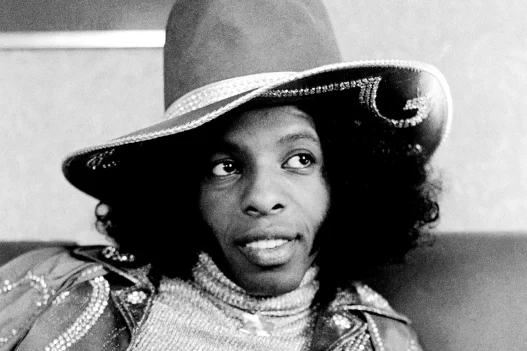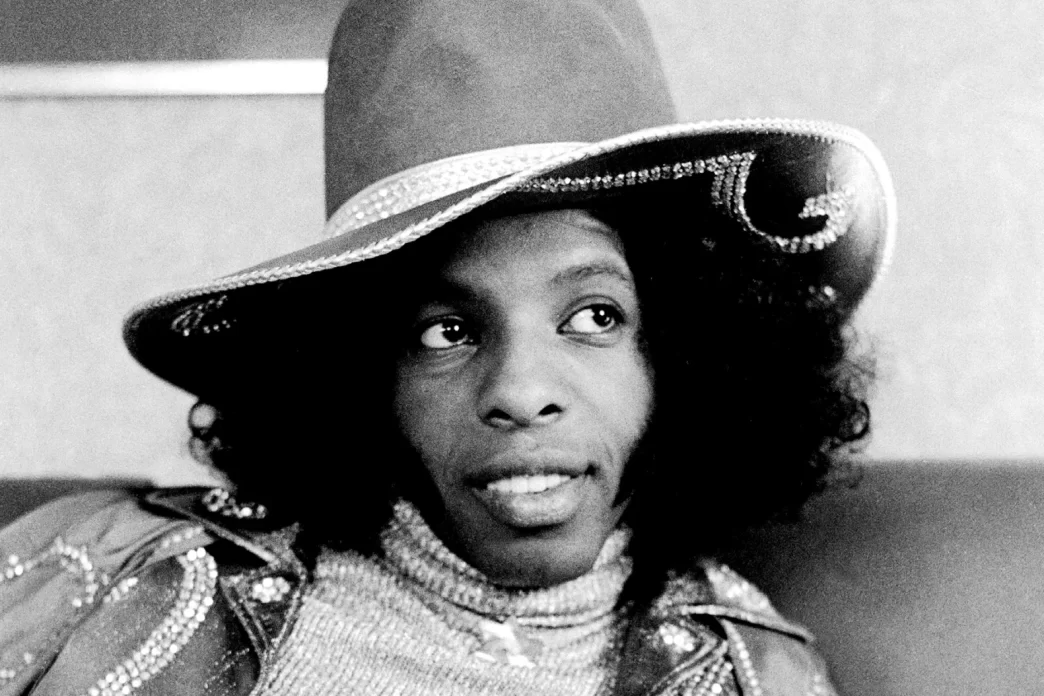Sly Stone and the Family Stone.
The name hints at something special, something different.
And they were.
Exploding onto the scene in the late 1960s, this groundbreaking band didn’t just make music; they sculpted a new sound, a joyous, funky, and socially conscious groove that continues to resonate today. But behind the vibrant music lay a complex story of genius, innovation, and ultimately, a tragic decline.
The Explosive Genesis of Sly Stone and the Family Stone
Born Sylvester Stewart in 1943, Sly Stone was a musical prodigy from a young age. A multi-instrumentalist with a keen ear and a passion for experimentation, he honed his skills playing in gospel groups and local bands around the San Francisco Bay Area. Before forming the Family Stone, he worked as a record producer for Autumn Records, where he worked with bands such as The Beau Brummels and The Mojo Men.
The Family Stone wasn’t just a band; it was a statement. In an era of stark racial divides, Sly Stone deliberately created a group that was both racially and gender diverse. Alongside Sly (vocals, keyboards, guitar), the original lineup included his brother Freddie Stone (guitar, vocals), sister Rose Stone (keyboards, vocals), Larry Graham (bass, vocals), Cynthia Robinson (trumpet), Jerry Martini (saxophone), and Greg Errico (drums). Each member brought a unique energy and talent to the mix, creating a collective force unlike anything else in music.
A Revolutionary Sound: How the Family Stone Broke Down Barriers
The Family Stone arrived when music needed a shake-up. The late ’60s were a time of cultural upheaval, and their music reflected that. They combined funk, soul, rock, and psychedelic elements into a potent, infectious, and thought-provoking blend. Their integrated lineup sent a powerful message of unity and inclusivity at a time when society was anything but.
Hits like “Dance to the Music,” “Everyday People,” and “Thank You (Falettinme Be Mice Elf Agin)” weren’t just chart-toppers; they were anthems. “Everyday People,” for example, with its simple yet profound message of acceptance, became a rallying cry for the Civil Rights movement. These songs filled dance floors and sparked conversations, bridging divides through the power of music.
Contemporary reactions to the band were often ecstatic. They were praised for their high-energy performances, innovative sound, and message of peace and love. Their appearance at Woodstock in 1969 was a defining moment, cementing their status as one of the most important bands of the era.

Sly Stone’s Musical Genius: Innovation and Songwriting Prowess
At the heart of the Family Stone’s sound was Sly Stone’s unparalleled musical genius. He was a master of melody, rhythm, and arrangement, able to craft irresistibly catchy and deeply meaningful songs. His songwriting explored themes of love, peace, social justice, and the human experience with a unique blend of sincerity and wit.
Sly’s innovations extended beyond songwriting. He experimented with new sounds and techniques, incorporating jazz, gospel, and even electronic music elements into the Family Stone’s repertoire. He consistently proved his talent by using the wah-wah pedal on guitar and the slap bass technique, which became a signature element of the band’s sound, largely thanks to Larry Graham’s pioneering work on the instrument.
Freddie Stone’s guitar work shouldn’t be overlooked. His riffs and solos added a crucial rock edge to the band’s sound. Rose Stone’s soulful vocals provided a perfect counterpoint to Sly’s, and the horn section of Cynthia Robinson and Jerry Martini gave the band its distinctive punch. Larry Graham’s invention of the slap bass revolutionised bass playing.
The Family Stone’s Lasting Impact on Music
The Family Stone’s impact on music is undeniable. They paved the way for countless artists who followed, influencing genres from funk and soul to hip-hop and rock. Artists like Prince, Red Hot Chilli Peppers, George Clinton, Stevie Wonder, D’Angelo, OutKast, and numerous others have cited the Family Stone’s significant influence on their work. Even today, their music continues to be sampled, covered, and celebrated by musicians of all backgrounds.
Their influence extends beyond specific artists. The Family Stone helped to popularise funk music, bringing it to a broader audience and inspiring a generation of musicians to explore its possibilities. They also challenged the conventions of popular music, showing that it was possible to create commercially successful and socially conscious music.
Deconstructing the Sly Stone Style: A Fusion of Funk, Soul, and Rock
The “Sly Stone Style” uniquely blends funk’s driving rhythms, soul’s emotive vocals, and rock’s raw energy. Key elements include:
- Funky Rhythms: Syncopated beats and infectious grooves that make you want to dance.
- Soulful Vocals: Sly’s distinctive voice, ranging from smooth crooning to impassioned shouts.
- Rock Instrumentation: Using electric guitars, drums, and bass to create a powerful sound.
- Horn Section: Add trumpets and saxophones to add punch and texture.
- Socially Conscious Lyrics: Peace, love, and equality messages are woven into catchy melodies.
This unique combination made the Family Stone’s music so irresistible and influential.
Sly Stone’s Enduring Legacy: An Influence That Echoes Today
Despite the challenges and the eventual decline, Sly Stone’s legacy remains secure. He was a visionary artist who created innovative and timeless music. His songs continue to be played on the radio, sampled by DJs, and covered by musicians of all ages.
Sly Stone’s death on June 9, 2025, at the age of 82, officially attributed to a prolonged battle with COPD and other underlying health issues, marked the end of a long and complicated life. His musical innovations were widely celebrated, including the pioneering fusion of funk, rock, and soul, and his socially conscious lyrics. Contemporary musicians have often cited his influence.
While Sly Stone’s life was filled with triumphs and tragedies, his music inspires and uplifts. He will be remembered as one of his generation’s most important and influential artists, a true innovator who changed the face of music forever. His impact echoes through the decades, reminding us of the power of music to unite, inspire, and move us all.



















